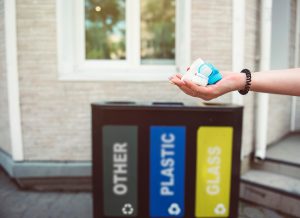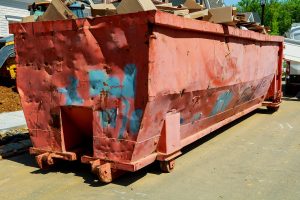Did you know that globally, the urban population produces over 2.01 billion tons of solid waste annually?
Furthermore, if this trend were to continue, the amount of garbage produced is on track to reach 3.40 billion tons by 2050.
This translates to an increase in waste disposal expenses, with the World Bank predicting global garbage collection costs to top $375 billion by 2030.
Fortunately, smart city initiatives are driving innovation in the waste management sector.
For instance, a fast growing use case is the adoption of smart waste sensors in smart bins where the number of smart bins is expected to reach 2.4 million by 2025, and according to Berg Insight, with 29.8% growth through 2025.
For access to exclusive content including use cases, webinars, white papers, and more, sign up for our monthly newsletter today!
What are smart waste bins?
Unlike their traditional counterparts, smart waste bins are often equipped with various sensors, connectivity features, and data analytics capabilities.
This is to improve waste management and recycling efforts and make the process more sustainable for both businesses and consumers. Once the containers are full, the smart bin can be emptied, and waste streams easily diverted to the correct recycling facility.
Here are 3 key areas where the Internet of Things (IoT) can enable more efficient waste management processes.
Route optimization
Traditionally, waste management systems have used a pre-defined route based. Usually these are based on historical patterns to schedule garbage collection, regardless of whether they are full or not.
Smart bins break this model by using data on fill level in real time. This allows operators to plan optimal collection routes and making pickup processes more efficient. Thereby saving on fuel as well as manpower.
If a sensor detects that a bin is almost full, an automatic alert can also be sent to the waste management team to schedule an extra pickup before it overflows.
It also helps with long-term planning of bin locations where more might be needed or reduced. Or even planning around holidays and events where bin usage might increase significantly.

Smart recycling
According to a report from the UN, a staggering 50 million tons of electronic waste is generated annually.
Discarded electronic devices often contain harmful chemicals, such as lithium from smart product batteries which can leach into groundwater. At the same time, this provides ample opportunities to reclaim base metals to support ESG initiatives and a circular economy.
Once a battery is depleted, an alert can be sent to the manufacturer for pick up and recycling.
Read more about our electric vehicle battery solution and ESG initiatives with our ecosystem partner, SmartAxiom.

Data analysis
As mentioned earlier, smart bins can record the pace at which they fill up, how often they are emptied, and even what they contain.
This real-time data unlocks endless possibilities. Deeper insights lead to better distribution of bins and eliminates incorrect disposal practices.
Trends can also be assessed to better plan collection and disposal processes. Resulting in better allocation of waste management resources.
These smart bins can also be integrated with a mobile application. Citizens can provide additional feedback such as overflowing or damaged bins to further optimize processes.

Parting insights
If you’re looking at a smart bin solution, over three quarters of connected waste collection points in 2020 relied on cellular connectivity.
While existing units can be retrofitted, wireless sensors are increasingly being pre-integrated into waste bins as well.
These technologies offer cost and power-efficiency options that leverage existing networks while also having strong built-in security, making them ideal for smart city applications.
Learn more about our bespoke connectivity options here or try out our SIMs using this form.
Alternatively, contact one of our industry experts who will help you accelerate your smart waste management project today.












